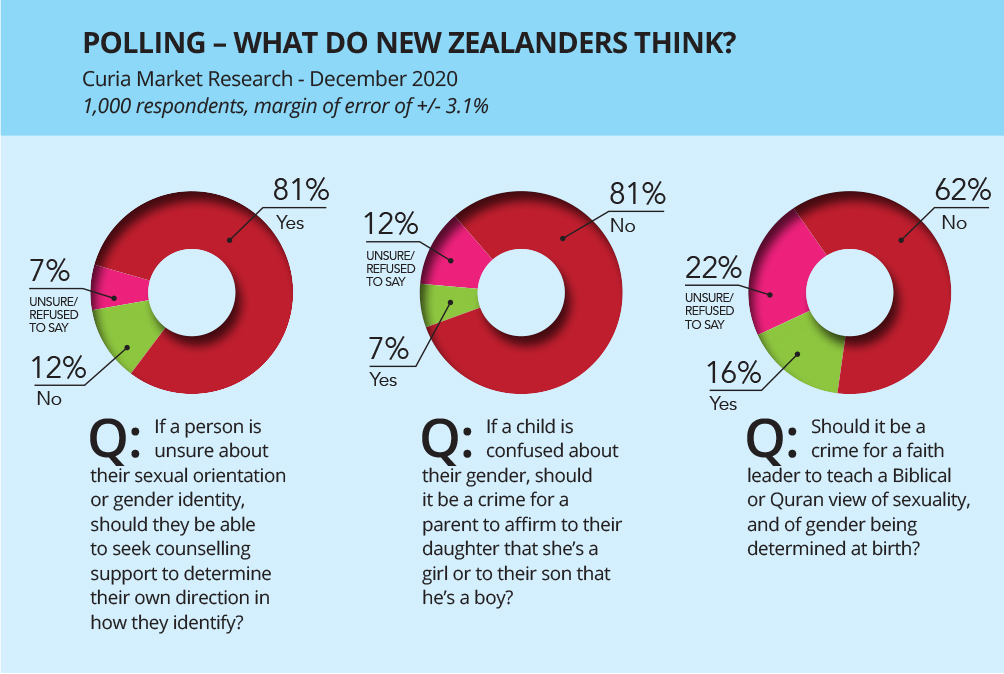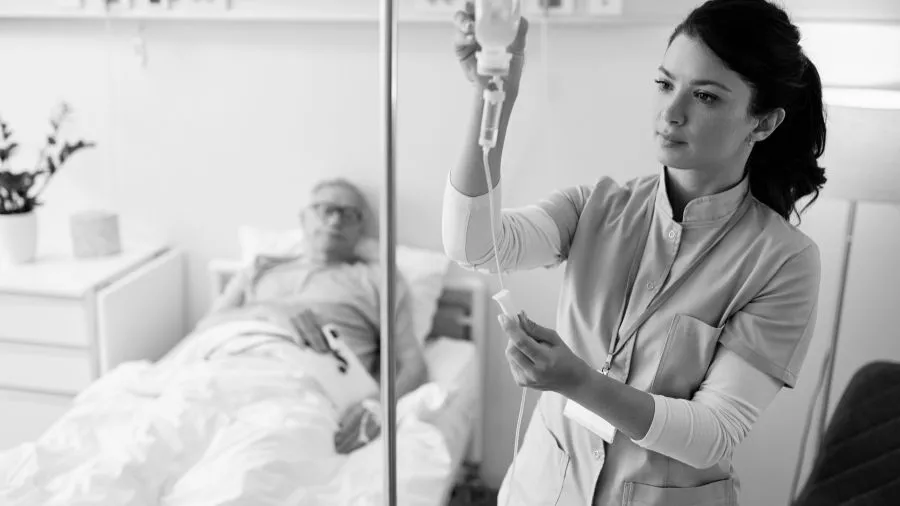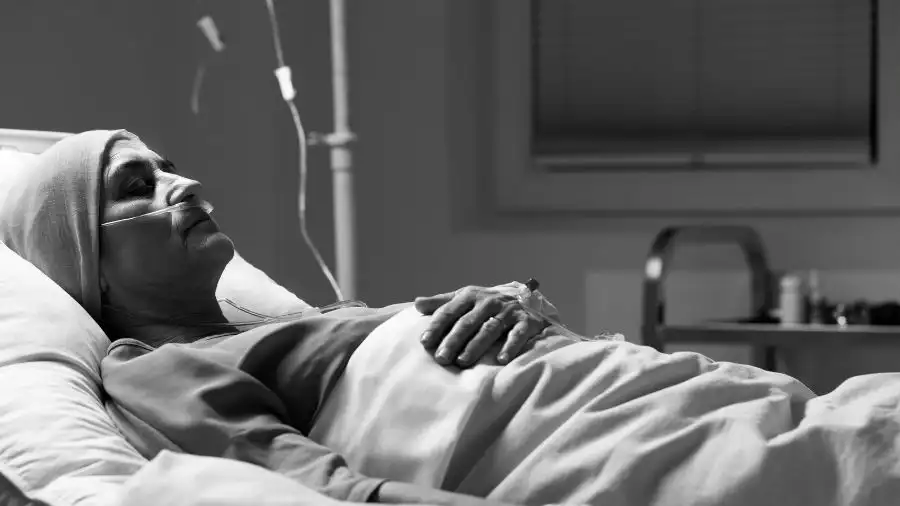Media Release 10 February 2021
A nationwide poll has found that there is widespread opposition to the legal effects of a ‘conversion therapy’ ban.
In the poll of 1,000 New Zealanders surveyed just before Christmas by Curia Market Research, respondents were asked “If a person is unsure about their sexual orientation or gender identity, should they be able to seek counselling support to determine their own direction in how they identify?” 81% of respondents said they believed a person should be able to seek counselling support to determine their own direction. Only 12% were opposed.
According to a legal opinion released yesterday, if a person wanted to align their sexuality with the teachings and values of their particular faith – be it Muslim or Christian, Jewish or Sikh – and sought help to do so from a minister, imam or other faith leader, a ban would make it virtually impossible to access the support they wanted. Furthermore, if they were able to find someone prepared to provide counselling of that kind, they could well cause that person to become implicated in a criminal offence. Even an ethical discussion of this with a counsellor or faith leader or youth worker could be interpreted by the patient, and the law, as ‘trying to stop you being trans or gay’.
When asked “If a child is confused about their gender, should it be a crime for a parent to affirm to their daughter that she’s a girl or to their son that he’s a boy?” Only 7% of respondents think it should be treated as a crime, and 81% are opposed.
Under a ban, parents could be criminalised and liable to a fine or even imprisonment simply for affirming that their sons are boys and their daughters are girls. A ban could criminalise parents who wish to protect their child from the physical, emotional and psychological harm caused by gender dysphoria. This is not loving or compassionate towards children, especially when numerous reviews show the majority of children who are confused about their gender also suffer from diagnosed mental disorders, such as depression and anxiety. Merely encouraging a gender confused child to wait for the orientating effects of puberty to be worked through may be considered a form of child abuse, or ‘domestic or psychological abuse’ as is already happening in Canada and the U.S.
Respondents were also asked “Should it be a crime for a faith leader to teach a Biblical or Quran view of sexuality, and of gender being determined at birth?” Just 16% think it should be a crime, and 62% said it shouldn’t be a crime. 22% were either unsure or refused to say.
All New Zealanders have a right to freedom of religion. This teaching is a legitimate activity for places of worship, faith-based schools and for other religious groups. Islamic and Christian schools could be breaking the law for teaching their students that Allah/God made us male and female. Church leaders, youth workers and imams could become criminals for reading and explaining the Quran or the Bible – that is, for doing their job.
In all three questions, there was no significance difference in responses based on gender, age, area, socio-economic factors or political party support.

In 2019, the Justice Select Committee, consisting of MPs from Labour and National, considered two petitions wanting to ban ‘conversion therapy’. In their report, they rightly declined to support such a ban, stating:
“The Bill of Rights Act affirms, protects, and promotes human rights and fundamental freedoms in New Zealand. It allows all New Zealanders to live free from discrimination, including in relation to their sexual orientation. New Zealanders also have the right to freedom of religion. This protects those who offer and seek out conversion therapy because of their religious views.”
All New Zealanders should be protected from coercive, abusive or involuntary psychological or spiritual practices. However, participation in psychological assessments, counselling sessions, prayer meetings and other therapeutic practices is almost always an expression of voluntary behaviour and personal freedom.
Under this proposed ban, people would be prevented from getting help to live the lifestyle they choose – if that lifestyle is heterosexual or based on their biological sex. While gender and sexuality is supposedly ‘fluid’, activists want the law to stipulate that it can only go in the direction they approve.
Banning practices which bring about positive change for people in pain, changes they genuinely desire for themselves, would be the real crime.
The nationwide poll was carried out during December and has a margin of error of +/- 3.1%.



